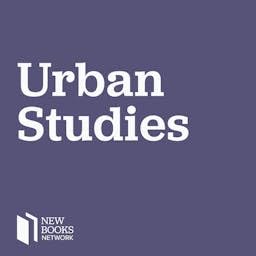Betty Boyd Caroli's biography of Mary Kingsbury Simkhovitch is the first full-length work on a seminal figure in the settlement house movement, which spearheaded efforts to improve the life of immigrants and to counter urban squalor in cities around America in the early 19th century. Greenwich House, the community center Simkhovitch founded in 1902 in Greenwich Village, then a destination point for new immigrants to New York, quickly gained a reputation equal to that of Jane Addams's Hull House in Chicago, providing services in health, recreation, education, and the arts (which Greenwich House continues to do to this day). Simkhovitch became a tireless advocate of public housing and has been called by some "the mother of public housing." She played a central role in designing and administering the first public housing projects in America during the New Deal, in which she was an integral figure. The National Housing Conference, which she founded in 1931, continues to operate in our current "housing crisis" as among the most prominent advocates for safe, affordable housing. She co-wrote the National House Act of 1937, the first piece of legislation to establish the federal government's responsibility to help provide low-income families with housing. A Slumless America: Mary K. Simkhovitch and the Dream of Affordable Housing (Oxford University Press, 2026) by Caroli, best-known for her work on presidential First Ladies, which has gone through multiple editions, will become the standard account of a truly remarkable life. Born in New England and educated in Boston and at the University of Berlin, Simkhovitch married a Russian intellectual seven years her junior who spoke no English and had no job prospects. Raising a family while working for her rapidly expanding set of causes, Simkhovitch was portrayed in a DC Comics series (also featuring Diana Prince) in the early 1940s as a "Wonder Woman of History" for her seeming ability to do it all: take on the full spectrum of urban ills while also raising and supporting her family. Her husband eventually joined the Columbia faculty and became a noted art collector, advising collectors such as J. P. Morgan, while she exposed the squalor of Downtown slums. The stress of trying to do it all took a heavy toll on Simkhovitch, but her lifelong, passionate advocacy of and contributions to housing reform continued unabated and remains both inspiring and relevant. Betty Boyd Caroli is a graduate of Oberlin College and holds an MA in Mass Communication from Annenberg School of University of Pennsylvania, as well as a Ph.D. in American Civilization from New York University. She studied at the Università Per Stranieri in Perugia, Italy, and the Salzburg Seminar in Austria. A Fulbright in Italy led her to teach at the British College in Palermo, the English School in Rome, and two branches of City University of New York (Queens College and Kingsborough Community College). Caleb Zakarin is CEO and Publisher of the New Books Network. Learn more about your ad choices. Visit megaphone.fm/adchoices
続きを読む
一部表示
 49 分
49 分 57 分
57 分 1 時間
1 時間 27 分
27 分 2026/01/2546 分
2026/01/2546 分 50 分
50 分 1 時間 10 分
1 時間 10 分 57 分
57 分
